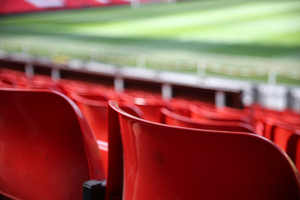Ctrl + GCC: The Rise of e-Sports in the Gulf
E-sports, or electronic sports, refers to competitive, organised video gaming. Professional players and teams compete in various video game titles, often in tournaments or events. The competitive nature of e-sports is akin to traditional sports, with players and teams vying for victory in structured competitions.
There are approximately 3.3 billion e-sports players globally, and about 574 million of these players are in the Middle East and North Africa (MENA). The MENA market makes up about 25% of the sector’s annual growth and is the only market with double digit growth this year. This is remarkable and is reflective of the immense number of opportunities and the potential for further growth in the sector.
The phenomenon continues to gain immense popularity, attracting a dedicated fan base and significant investment. This is particularly true in Saudi Arabia and several other Gulf Cooperation Council (GCC) countries, who are working to ensure that the region is regarded as an e-sports powerhouse.
In late October, Saudi Arabia announced an e-Sports World Cup that is to be held annually in Riyadh starting in the summer of 2024. Advertised as the largest global event of its kind, it is intended to serve as a platform to support the gaming and e-sports sectors and help consolidate Saudi Arabia’s position as a hub for international e-sports.
The launch of the tournament is also expected to aide in achieving the goals envisioned in Saudi Arabia’s National Gaming and e-Sports Strategy. The strategy aims to increase the sector’s contribution to the Kingdom’s gross domestic product by more than SR 50 billion (US$ 13.3 billion) by 2030 and create 39,000 new job opportunities. This follows the announcement of the creation of the Gulf Federation for Electronic Sports earlier in September, which aims to foster collaboration amongst local players and developers.
Forming part of the broader e-sports initiative in the Kingdom, the country also publicised the Public Investment Fund’s allocation of US$ 38 billion to Savvy Games Group to invest in gaming and e-sports, with multiple acquisitions already executed. These developments signify a promising future for the e-sports sector not only in Saudi but in the GCC region generally.
With the creation of two dedicated gaming centres, the United Arab Emirates (UAE) has also been making progress in its development as a regional centre for e-sports. The DMCC Gaming Centre, launched by Dubai Multi Commodities Centre last year, provides a platform for gaming industry professionals to connect and collaborate.
Likewise, Abu Dhabi’s centre for gaming and e-sports is a government-led initiative that amasses the broad efforts throughout Abu Dhabi to transform the emirate into a global gaming hub. The centre collaborates with regulators on dedicated legislation and provides infrastructure for gaming companies. These centres add to the UAE’s compelling incentives for both players and companies to develop a local presence. As the most digitally connected country in the region with the highest gaming expenditure per capital, the UAE is an attractive choice.
While e-sports continue to thrive in the GCC, the impact goes beyond entertainment. The industry has become a catalyst for technological innovation. One of the driving forces behind the rise of e-sports is the region’s commitment to embracing cutting-edge technology. In this regard, regional telecommunications companies have a role to play and have significantly invested in creating an environment conducive to competitive gaming. This includes rolling out high speed internet infrastructures and looking at issues that affect e-sports such as reducing latency issues, increasing download and upload speeds, and creating capacity for more bandwidth on local networks.
Game latency is a key issue amongst gamers. Latency affects how quickly a gamer’s response is reflected in game play and it is of particular interest to those who prefer games where reaction time is crucial. Relatively high latency in some markets can make some games glitchy. Low latency can provide smooth and lag-free gaming. UAE’s Etisalat and Bahrain’s Batelco are on the frontier of this movement, with some of the lowest latency numbers in the region.
To address the more latency-sensitive games, telecommunications operators in the region could explore different approaches to improve connectivity consistency, speeds, and localisation of gaming servers as this would further support more data-intensive games, enhance the multi-player gaming experience on smartphones, and cater to competitive gamers. These improvements would place the GCC in an even better position to lead game development and foster local gaming ecosystems.
Clearly, the region has a vibrant and untapped gaming market poised for tremendous growth. An appetite for technological advancement, strategic investments and excellent governmental support make the countries of the GCC formidable players in the international e-sports arena.
The e-Sports World Cup is the natural next step in Saudi Arabia’s journey to become the premier global hub for gaming and e-sports, offering an unmatched e-sports experience that pushes the boundaries of the industry.














